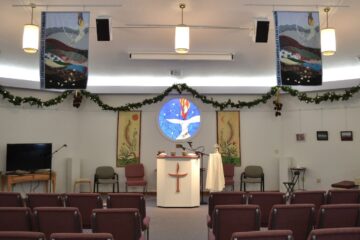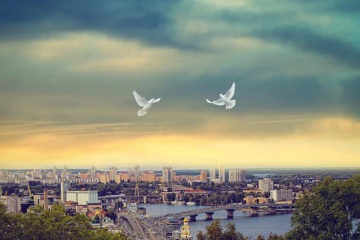A Veteran’s Day Acknowledgement and a Hope of Peace
Nearly all of us know someone in service. Most people know a person or several who volunteered for military service or who the government drafted at one point. For many of us, our grandparents, parents, or other elders in our families were a part of the draft. Our government conscripted them to fight in a World War, or to defend a nation far away in Asia. They were made to fight on behalf of the United States for various reasons.
For others, friends, family, school classmates, or we ourselves may have chosen to engage in military service more recently. Perhaps they chose military service out of a patriotic sense of wanting to be a part of a unified force. Maybe they believed in the promise of America that school and media teaches so effectively. Perhaps they joined for financial reasons or to take advantage of programs for education and workforce training that the military can offer.
So many reasons might have played a part in decisions that you or someone you know made around military service.
Peace Comes from Caring
Regardless of the reasoning of those who fought, Veteran’s Day is a day that generations have built around not only military service, but the day of Armistice. It is a day for the hope of peace and new beginnings as an outcome of war. This Veteran’s Day, I hope we’ll pause to remember the many veterans in our country and within our own congregation. I pray we’ll remember how our government under-funds medical and disability care; remember the impact of leaving these the least well-funded and well-supported portions of our military.
Finding peace can be about ending a war, yes, but working for peace is also about making sure our society offers the tools and care to former and current soldiers. Veterans and returned personnel need to re-regulate their emotions for civilian life after being trained to fight. So working for peace is about ensuring that those who have fought are able to change their responses to violence. It is about learning to deal differently with training and trauma and about giving sufficient healthcare. It’s being honest about side effects of chemical and physical weapons which various armed forces used around people during a conflict. Making sure that war does not simply lead to cycles of more violence and war means that we must recall our history. We must speak aloud the wrong and the necessary, the good and the terrible.
War is nothing to glorify, and bloodshed is tragic, not heroic. Still, all veterans are ours to care about and to care for, now and forevermore. May we remember them, honor them, and be a part of the creation of peace in their name.


